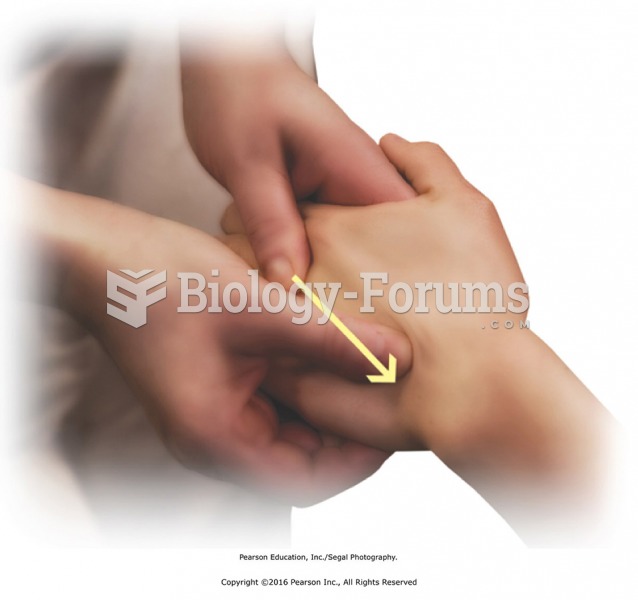|
|
|
When blood is deoxygenated and flowing back to the heart through the veins, it is dark reddish-blue in color. Blood in the arteries that is oxygenated and flowing out to the body is bright red. Whereas arterial blood comes out in spurts, venous blood flows.
The average person is easily confused by the terms pharmaceutics and pharmacology, thinking they are one and the same. Whereas pharmaceutics is the science of preparing and dispensing drugs (otherwise known as the science of pharmacy), pharmacology is the study of medications.
There are 20 feet of blood vessels in each square inch of human skin.
Though newer “smart” infusion pumps are increasingly becoming more sophisticated, they cannot prevent all programming and administration errors. Health care professionals that use smart infusion pumps must still practice the rights of medication administration and have other professionals double-check all high-risk infusions.
Immunoglobulin injections may give short-term protection against, or reduce severity of certain diseases. They help people who have an inherited problem making their own antibodies, or those who are having certain types of cancer treatments.
 Positron emission tomography (PET) image showing the difference in the metabolic activity of the bra
Positron emission tomography (PET) image showing the difference in the metabolic activity of the bra
 Deep effleurage to buttocks muscles using reinforced palm. Place one hand over the other to apply ...
Deep effleurage to buttocks muscles using reinforced palm. Place one hand over the other to apply ...





